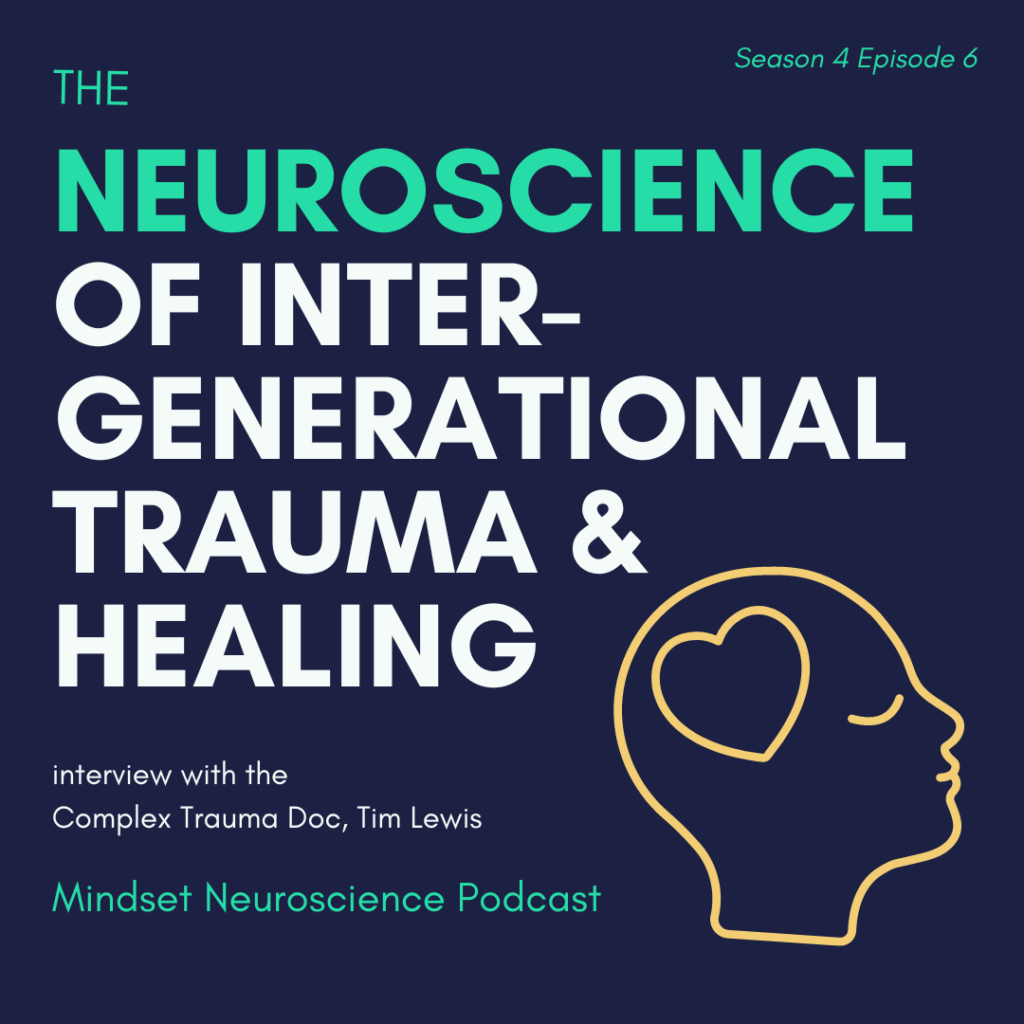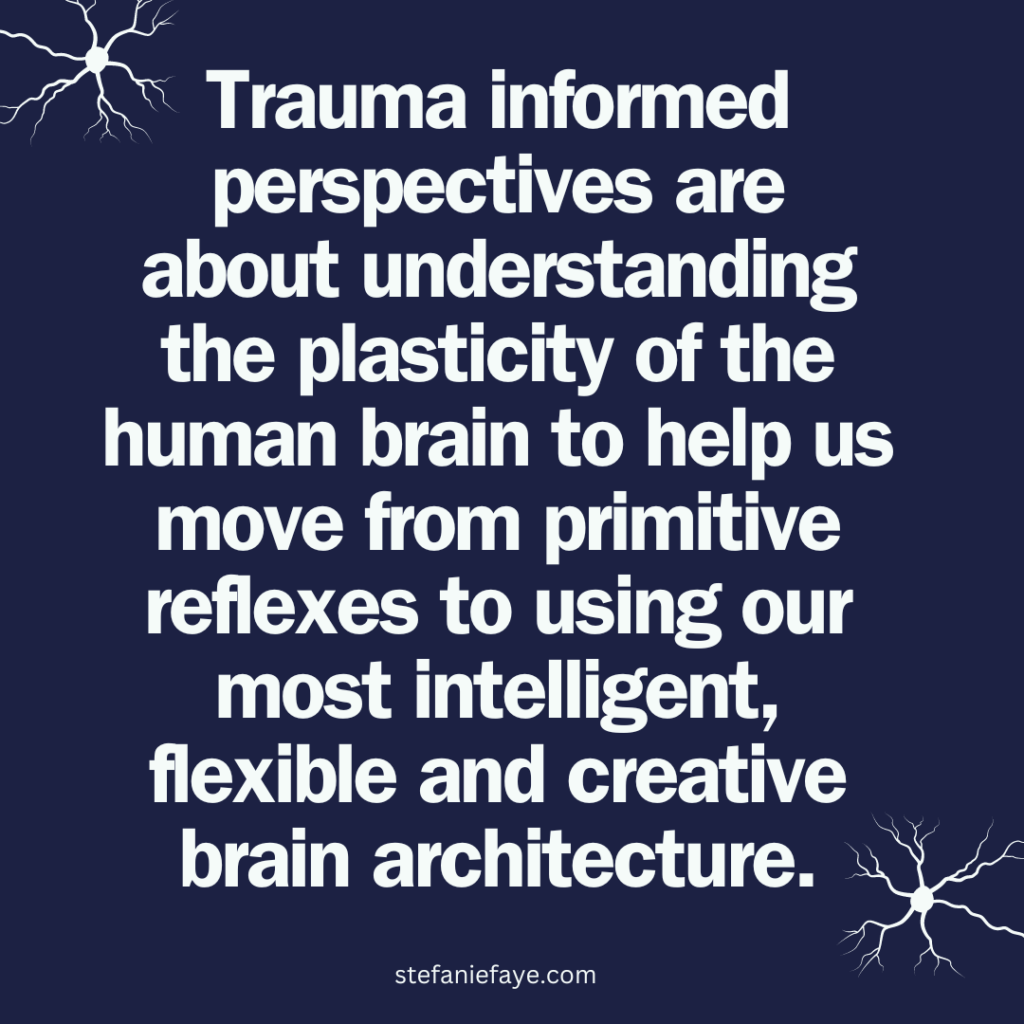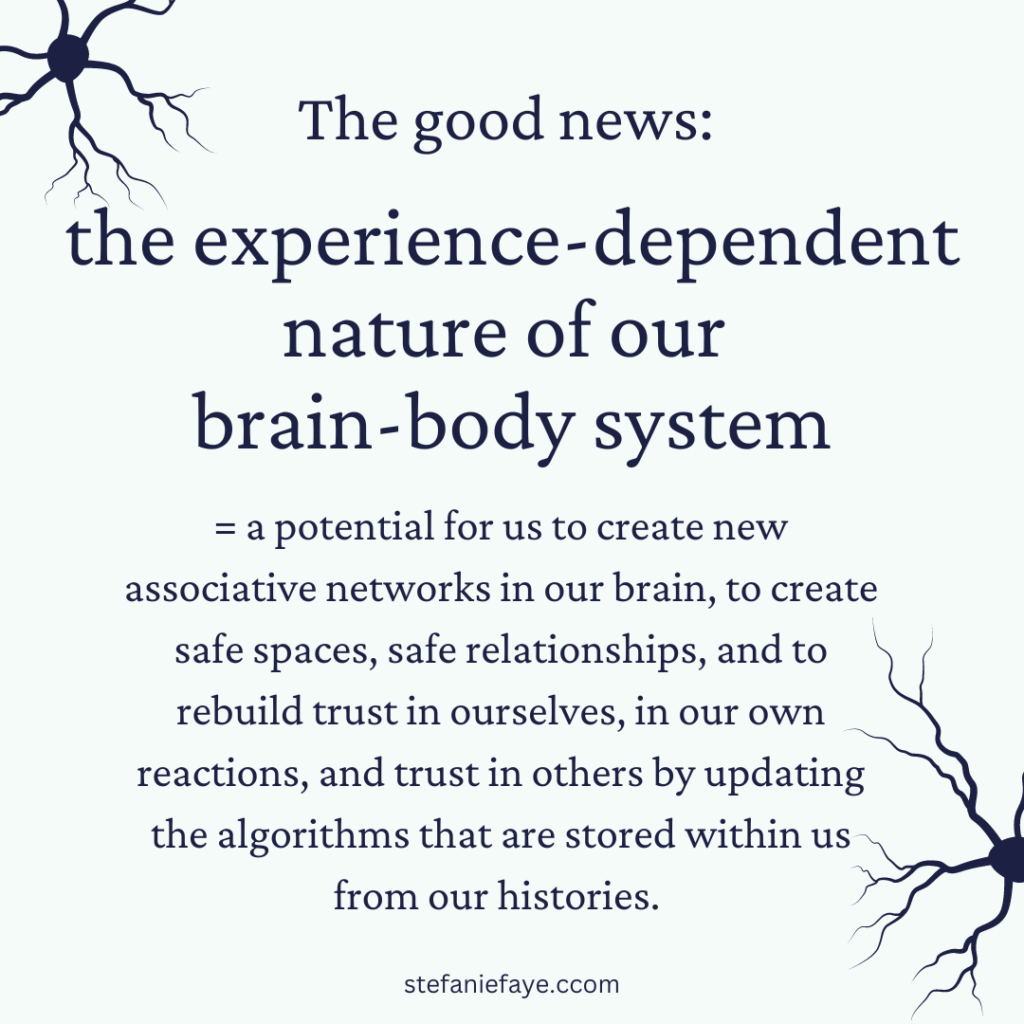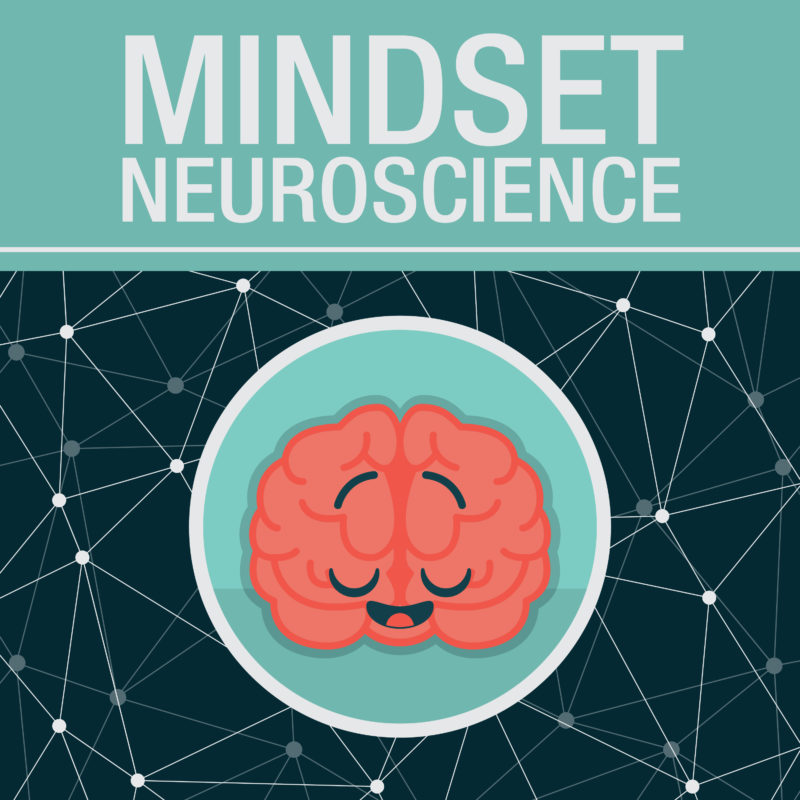“We have learned that trauma is not just an event that took place sometime in the past; it [...] has ongoing consequences for how the human organism manages to survive in the present. Trauma results in a fundamental reorganization of the way mind and brain manage perceptions. It changes not only how we think and what we think about, but also our very capacity to think.”
― Bessel A. van der Kolk, The Body Keeps the Score: Brain, Mind, and Body in the Healing of Trauma

Trauma informed perspectives are about understanding the plasticity of the human brain to help us move from primitive reflexes to using our most intelligent, flexible and creative brain architecture.
Trauma-informed perspectives are based on research and practices that connect us much more deeply and intimately with each other, and encourages us to tune in to the intelligence of our body and senses, update narratives that defeat or deplete us, and seek connection and trusting relationships: all of which are biological imperatives for creative, flexible brain architecture and the keys to post-traumatic healing.
We all need to become more ‘trauma-informed’ in order to solve humanity’s greatest challenges – challenges that REQUIRE human connection, intimacy and trust – three things that are dangerously lacking in many people’s lives.
Trauma-informed perspectives are for EVERYONE.
Whether you are an educator, community leader, even business innovator – understanding trauma will help you understand human behavior in general.
In this episode, I interview Tim Lewis, who is a clinical psychologist, also known as the Complex Trauma Doc. We discuss his book - his memoir - as well as his path to becoming a clinical psychologist through the lens of his own trauma, some deeply tragic and horrific circumstances that occurred in his life. His journey led him to reflect on what causes people to do things that can create trauma for others, as well as the systems and forces that are at play in people's lives and throughout history that lead to a passing on of intergenerational trauma.
Listen on:
We go through a lot of different aspects of trauma, including different modalities that we can use for healing through trauma. We also look at it through a neurological lens, and how different types of social dynamics can lead to severe dysregulation and a lack of psychological safety, inability to connect with others, and lack of self-acceptance, all of which can feed into different cycles of trauma and mental health challenges.

This episode reveals the power of systems thinking.
We look at how context matters and how one person's actions has many threads that are influenced by that person's history, the history of their caregivers, their ancestors, and all the other threads that are being fed into each of us through the various systems occurring within society.
Our bodies store memory, whether we know it or not, whether we acknowledge it or not.
These are stored on cellular, kinesthetic visceral sensory levels. And if we don't at least have some acknowledgement of systems in play, it can make it hard for us to:
- recognize our own patterns, and
- have some ideas of what might help us shift out of a repetitive pattern that we don't want to repeat.
It's not about continuously diving into the past and staying there, but it IS about figuring out what are some of the influences that might be at play in our current experiences, and reactions. Especially if our reactions are over-amplified or happening in ways that don't help us create our desired outcomes.

The good news:
due to the experience-dependent and malleable nature of our brain-body system, there is a potential for us to create new associative networks in our brain, to create safe spaces, safe relationships, and to rebuild trust in ourselves, in our own reactions, and trust in others by updating the algorithms that are stored within us from our histories.
I hope you find this episode helpful!
Tim Lewis is a psychologist specializing in trauma therapy, Control-Mastery Therapy (CMT), Acceptance and Commitment Therapy (ACT) and Positive Psychology
Read Dr. Tim Lewis' writings on Medium
More resources for trauma
Trauma Research Foundation - Ruth Lanius
Mindset Neuroscience Podcast - Trauma and Moral Injury
Bethany Brand - Finding Solid Ground
Resmaa Menakem - Somatic Abolitionism
Bruce Perry (Trauma Research Foundation)
Focusing International - Aboriginal Focusing Oriented Therapy
Bessel Van der Kolk (author of The Body Keeps the Score)
Janina Fisher - trauma consultant and therapist
Toxic Stress - Harvard Center on the Developing Child
Peter Levine - Somatic Experiencing

